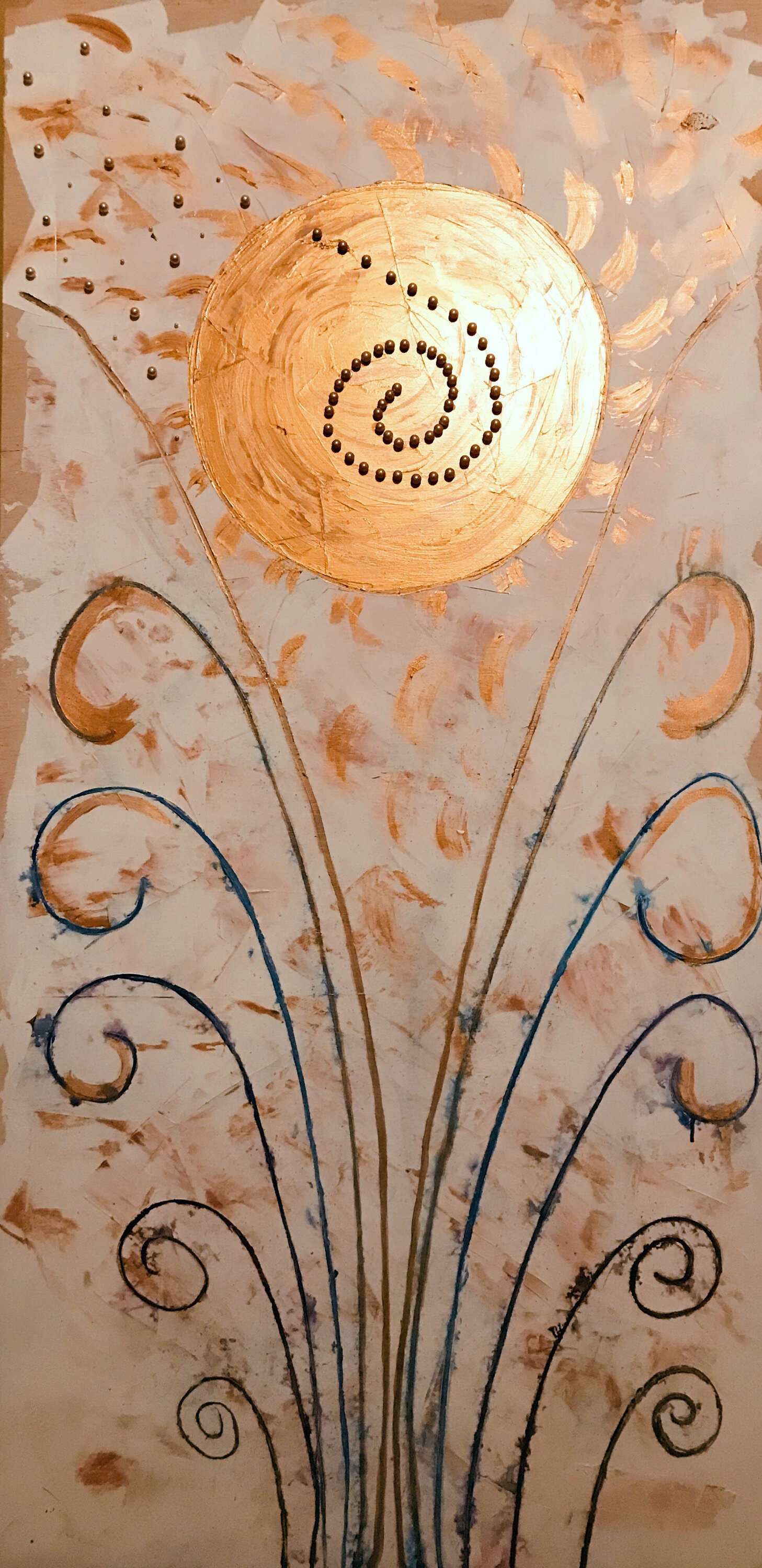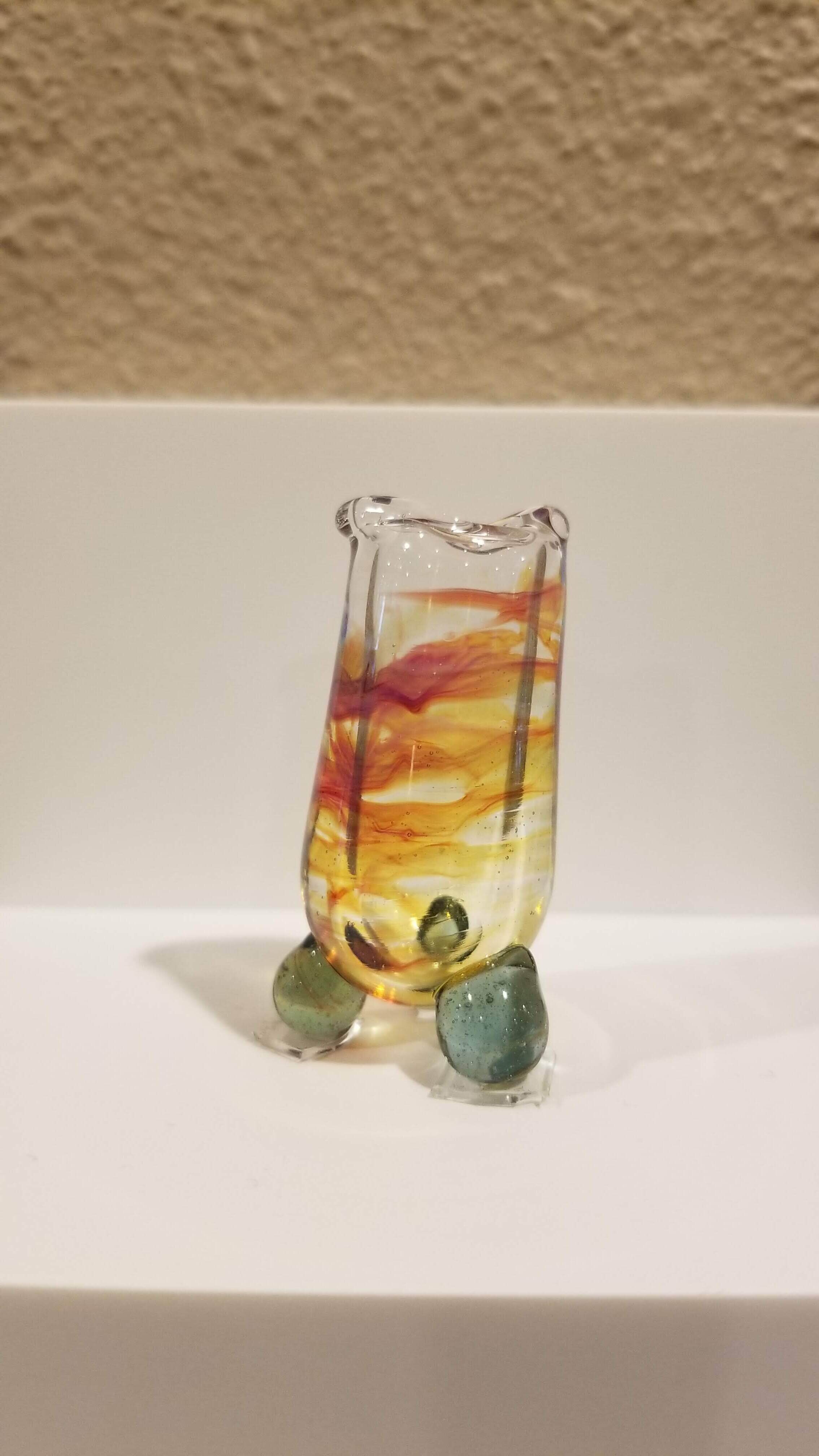I know. It’s true. I talk a lot about breath. I first became fascinated with breath as a way to understand God. The Hebrew word for breath, ruach, is also the word for spirit and the very first time it appears in Scripture is in the very first chapter of Genesis. It’s one of my favorite verses because it so accurately describes what the creative process feels like inside me:
And the earth was without form and empty, and darkness was over the face of the deep. And the Spirit of God was hovering over the waters.—Genesis 1:2
Spirit of God there is Ruach Elohim, the breath of God exhaled over the deep. So often the pieces of an idea are churning within me, but I don’t know exactly where things are going. For me, inspiration feels like a breath into the deep, a moment of stillness in the churning and then—LIGHT! It is a prayer.
And so I wanted to explore the ways that understanding breath could help me understand God. Then my father was diagnosed with lung cancer and breathing became something he had to think about all the time. Then my own medical professionals helped me to see the connections between breathing and panic, post traumatic stress, anxiety and healing. Somehow all these things have overlapped: anatomy, physiology, compassion, empathy, poetry, art and prayer.
And because I talk about it so much, I wanted to give you a glimpse into someone else’s process with this. I’ve been working with a lovely woman, an authentic soul, who has given me permission to share some of her words and art here:
April Near, 2019, mixed media and acrylic paint on 24”x40” wood board
Recently I was challenged to “draw my breath” ... I didn’t know how to do this but over the course of 3 weeks I wrestled, pondered and asked questions about my breath.
Then... after days of wrestling, thinking, pondering, praying I saw a picture of my breath; it was a picture of wind unfurling through the air so I dared to paint what I was seeing. When I allow stress and worry and control to dominate my heart and mind, my breath is shallow, constricting and dark which doesn’t allow the full unfurling into the air. But when I pause and remember that every breath I breathe is a gift and each encounter and circumstance in my life is a gift, I can give thanks and I realize that all that God’s given me can be gifted to the world around me and I can breathe deeper which gives me strength and freedom which eventually leads to a deeper experience of “life” which I in turn can give to others - like the pearls in the painting being released, sharing their beauty with the world. So it is with all of us. God gave us breath and our very breath and existence impacts the world around us. We alone get to choose the level of impact. So when we breathe deep and accept all that comes our way as a gift, we in turn are able to be a gift to those around us. (To read April’s entire post on her website you can click here.)
To draw means to pull. What we refer to as “drawing” in art came from the act of pulling a pen. When we draw our breath we are pulling in, inhaling, and considering the gift of Life. I love that ruach emphasizes the exhalation of God and drawing breath emphasizes the inhalation of man. God breathes out of Himself and into us.
I need to ponder that a bit…





















